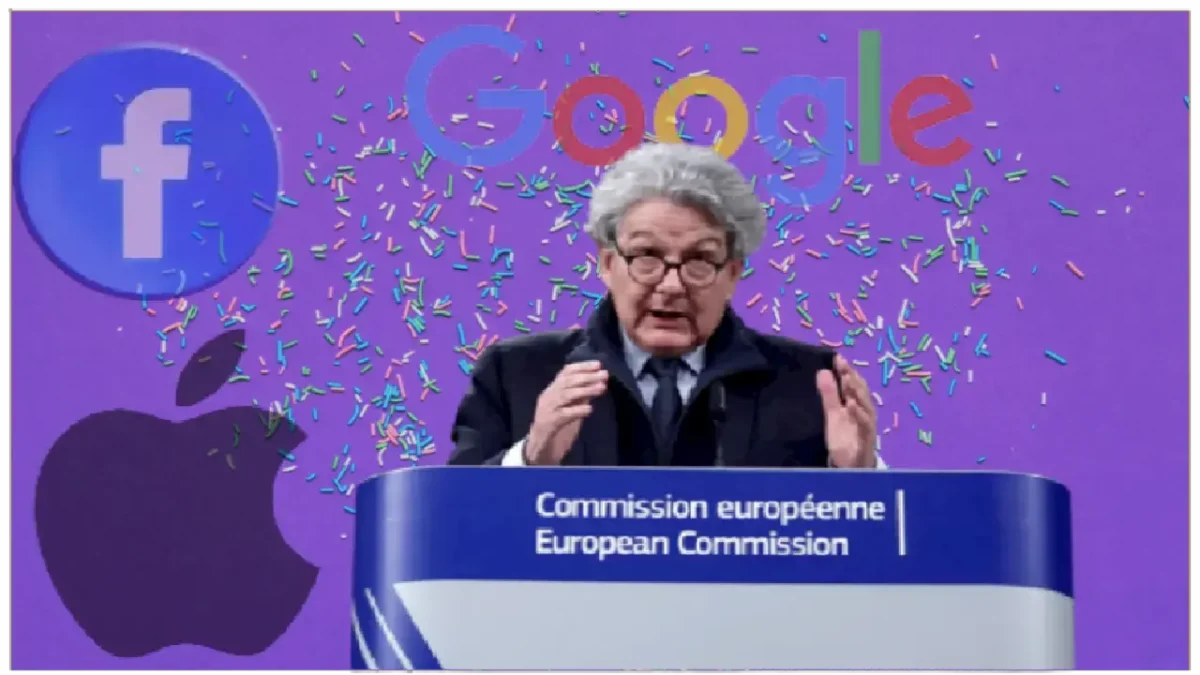The European Union’s focus is to ensure fair competition in the digital landscape which has led into a significant move with the implementation of the Digital Markets Act (DMA). This legislation aims to address concerns surrounding the dominance of tech giants such as Apple, Google, and Meta (formerly Facebook), by promoting user choice and fostering a level playing field for competitors. However, recent developments indicate potential non-compliance by these companies, leading to the launch of investigations by the European Commission. The EU’s law is launched to investigate all the alleged anti-competitive practices of Apple, Meta and Google
Information received suggest that the European Commission has voiced suspicions regarding various practices of these tech giants – Apple, Google, and Meta, suggesting that they may fall short of effective compliance with the legislation. According to sources, Thierry Breton, European Commissioner, has warned of the possibility of heavy fines should the investigations reveal inadequate adherence to the DMA.
The DMA imposes obligations on dominant online platforms to enhance user choice and provide fair opportunities for competitors. Initially, the law will be applicable to the three aforementioned companies, and later extended to others such as Amazon, Microsoft, and the parent company of TikTok. Violations of the DMA carry significant penalties, with fines potentially amounting to a substantial portion of a company’s global revenue.
One of the practices under scrutiny is Meta’s “pay or consent” model, particularly concerning its subscription service offering ad-free versions of Facebook and Instagram for a monthly fee. The European Commission has expressed concerns that this model may not adequately provide alternatives for users who choose not to consent, potentially leading to the accumulation of personal data by large companies. In response, Meta has defended its subscription model, emphasizing its alignment with regulatory obligations and its commitment to engaging constructively with the Commission.
It has been said that the investigations will extend to the app stores operated by Apple and Google, with the focus on their treatment for app developers and compliance with DMA provisions. Both companies are mandated to facilitate the steering of consumers to alternative offers outside their platforms, free of charge. Additionally, Apple’s “choice screen” for Safari and Google’s search practices are under scrutiny for potential violations of the DMA. Both companies have expressed confidence in their compliance efforts and willingness to cooperate with regulators during the investigation process.
Concerns have been raised again regarding Google’s treatment of third-party services in search results compared to its own offerings like Google Shopping and Google Flights. The European Commission aims to ensure fair and non-discriminatory treatment of third-party services, in line with DMA provisions. Google has asserted its commitment to complying with the DMA and engaging in dialogue with regulators and stakeholders to address concerns.
The European Union’s Digital Markets Act represents a significant regulatory effort to promote competition and protect consumer interests in the digital sphere. The launch of investigations into Apple, Google, and Meta demonstrates the EU’s commitment to enforcing compliance with the legislation. While concerns have been raised regarding various practices of these tech giants, their responses indicate a willingness to address regulatory requirements and engage constructively with authorities. As the investigations unfold, the outcomes will shape the regulatory landscape and set precedents for digital market regulation globally.
Kindly share and keep visiting gheducate.com for more updates.




